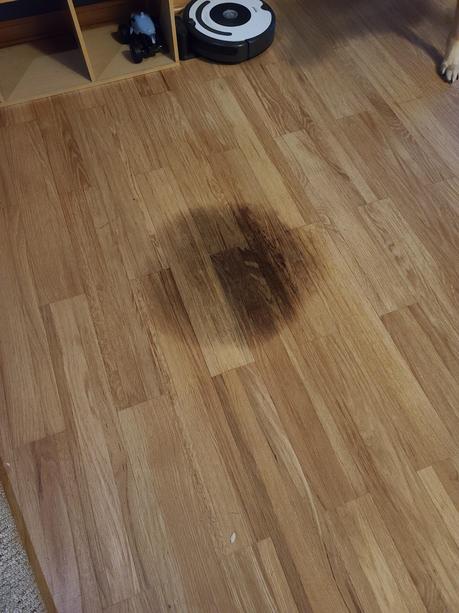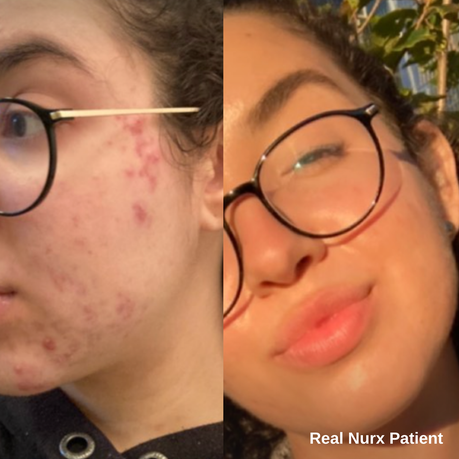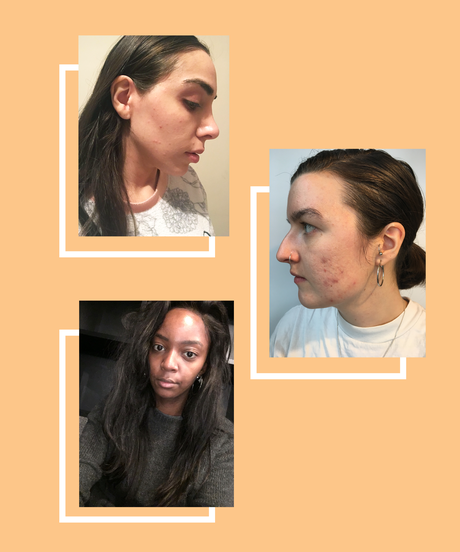Tretinoin does not bleach clothes. It is important to know if any medication could potentially cause discoloration on fabrics, but tretinoin is not known to have this effect.
Tretinoin (also known as Retin-A) is a popular topical medication used for treating acne, wrinkles, and other skin conditions. Some medications, such as benzoyl peroxide, can bleach fabrics and cause discoloration if they come into direct contact. However, tretinoin does not have this bleaching effect.
You can safely use tretinoin without worrying about it damaging or staining your clothing. It is always advisable to apply medication and wait for it to fully absorb into the skin before coming into contact with fabrics to minimize any potential transfer.

Credit: www.reddit.com
Can Tretinoin Bleach Clothes?
Tretinoin, a popular skincare ingredient, is known for its effectiveness in treating acne and improving skin texture. However, one concern that many individuals using tretinoin have is whether it can bleach their clothes. In this article, we will delve into the topic to provide you with all the necessary information regarding tretinoin’s potential to bleach clothes.
How Does Tretinoin Bleach Clothes?
Tretinoin, a derivative of vitamin A, has the potential to cause discoloration on fabrics, especially when it comes into contact with them before being fully absorbed into the skin. This discoloration can appear as yellowish stains or even bleaching on clothing items.
One of the reasons why tretinoin can bleach clothes is its ability to enhance skin cell turnover. This accelerated exfoliation process can cause the medication to transfer onto fabrics when it hasn’t completely absorbed into the skin.
Additionally, tretinoin can be reactive with some dyes and chemicals commonly used in fabrics, which further increases the risk of discoloration or bleaching.
Preventing Tretinoin Stains
To prevent tretinoin stains on your clothes, it’s essential to follow a few precautionary measures:
- Allow enough time for the medication to absorb fully into the skin before coming into contact with fabrics. This typically takes around 20-30 minutes.
- Avoid applying excessive amounts of tretinoin. Using a pea-sized amount is generally sufficient for the entire face.
- Consider using tretinoin at night to minimize the risk of transfer onto your clothing.
- Wear old or dark-colored clothes while using tretinoin to minimize the visibility of potential stains.
Removing Tretinoin Stains
If you accidentally get tretinoin on your clothes and notice a stain, it’s crucial to act promptly to prevent permanent discoloration:
Here’s a step-by-step guide to removing tretinoin stains:
- Blot the stain gently with a clean cloth or tissue to absorb any excess tretinoin.
- Rinse the stained area with cold water to dilute and remove the medication as much as possible.
- Apply a small amount of gentle detergent or stain remover directly to the affected area, gently rubbing it in with your fingers.
- Allow the detergent or stain remover to sit on the stain for a few minutes.
- Rinse the fabric thoroughly with cold water.
- Finally, launder the garment as usual, following the care instructions on the label.
By following these steps, you can increase the chances of effectively removing tretinoin stains from your clothes.

Credit: www.nurx.com
Alternative Options For Preventing Stains
Dealing with stains on clothes can be quite a hassle, and when it comes to using tretinoin, it’s important to take some extra steps to prevent any potential damage. While tretinoin itself does not contain bleach, it is a powerful medication that can cause irritation and lead to staining. Fortunately, there are several alternative options you can consider to protect your clothes and avoid any unwanted discoloration. Let’s take a look at some effective strategies below:
Using A Buffering Agent
A buffering agent can help minimize the likelihood of staining while using tretinoin. Simply put, a buffering agent helps to reduce the acidity and irritation caused by tretinoin, making it less likely to cause discoloration on your clothes. One common buffering agent is moisturizer, which not only dilutes the strength of tretinoin but also provides hydration to your skin. Applying a thin layer of moisturizer before tretinoin can act as a barrier, preventing direct contact between tretinoin and your clothes, thus reducing the chances of stains.
Applying Tretinoin On Dry Skin
Another effective way to avoid stains when using tretinoin is by applying it on dry skin. Moisture on your skin can increase the absorption rate of tretinoin, making it more likely to seep into your clothes. By ensuring your skin is completely dry before applying tretinoin, you can minimize the chances of any product residue transferring onto your clothing. Waiting for at least 20 minutes after washing your face or showering can provide enough time for your skin to dry, making it a suitable window to apply tretinoin without worrying about stains.
Wearing Old Or Dark Clothing
When it comes to preventing stains, choosing the right clothing can make a significant difference. Opting for old or dark-colored clothing can help mask any potential discoloration caused by tretinoin. Dark-colored fabrics are generally more forgiving when it comes to stain visibility, making them a practical choice to wear while using tretinoin. Additionally, wearing older clothes that you don’t mind staining can provide peace of mind, as you won’t need to worry too much about ruining your favorite outfits.

Credit: www.refinery29.com
Frequently Asked Questions Of Does Tretinoin Bleach Clothes?
Will Retinol Bleach Clothing?
Retinol won’t bleach clothing.
Does Tretinoin Bleach Skin?
Tretinoin does not bleach the skin, but it may cause temporary redness or peeling. It is a retinoid that helps improve skin texture, reduce acne, and diminish wrinkles. However, it is important to use it as directed and protect your skin from sun exposure.
Does Tretinoin Bleach Your Hair?
No, tretinoin does not bleach your hair. It is a topical medication used for treating acne and improving skin texture. It does not have any direct effect on hair color.
What Not To Do When Using Tretinoin?
When using tretinoin, avoid these actions: 1. Applying excessive amounts of the product. 2. Using tretinoin on broken or irritated skin. 3. Combining tretinoin with other drying or irritating products. 4. Exposing your skin to excessive sunlight or tanning beds. 5.
Skipping sunscreen application when using tretinoin.
Does Tretinoin Bleach Clothes?
Tretinoin does not bleach clothes as it is not a bleaching agent. However, it may cause some skin-lightening effects.
Conclusion
It’s essential to note that Tretinoin does not bleach clothes. However, caution should still be exercised to avoid any potential stains or discoloration. Taking preventive measures such as waiting for the product to completely absorb into the skin before coming into contact with clothing can help minimize any unwanted effects.
Remember to always follow the instructions provided by your healthcare professional for the best results.
